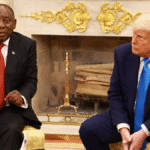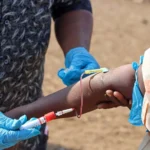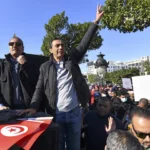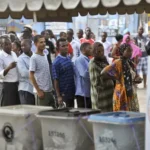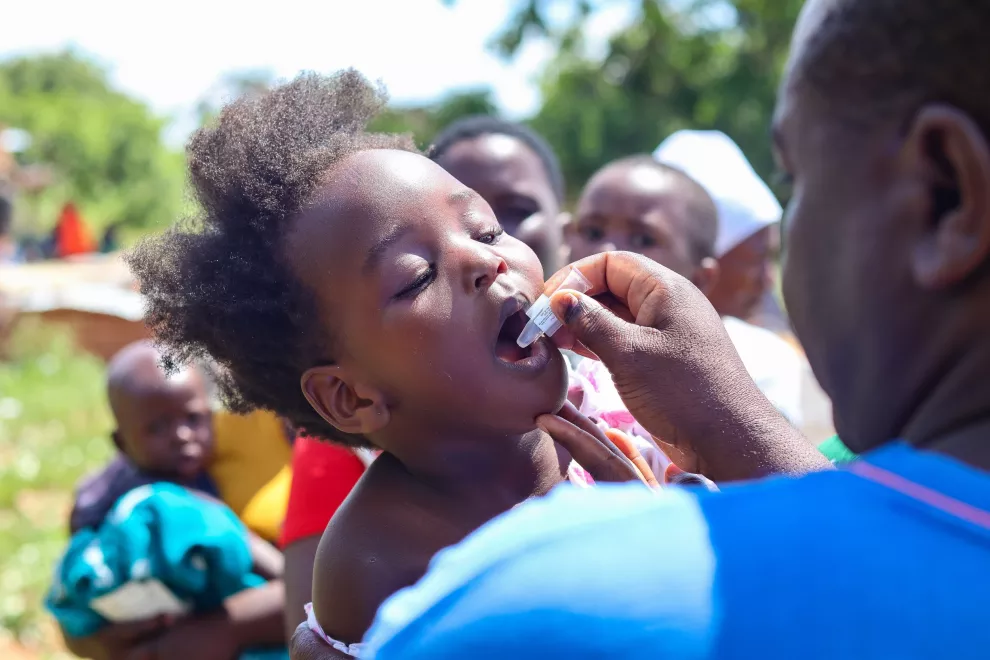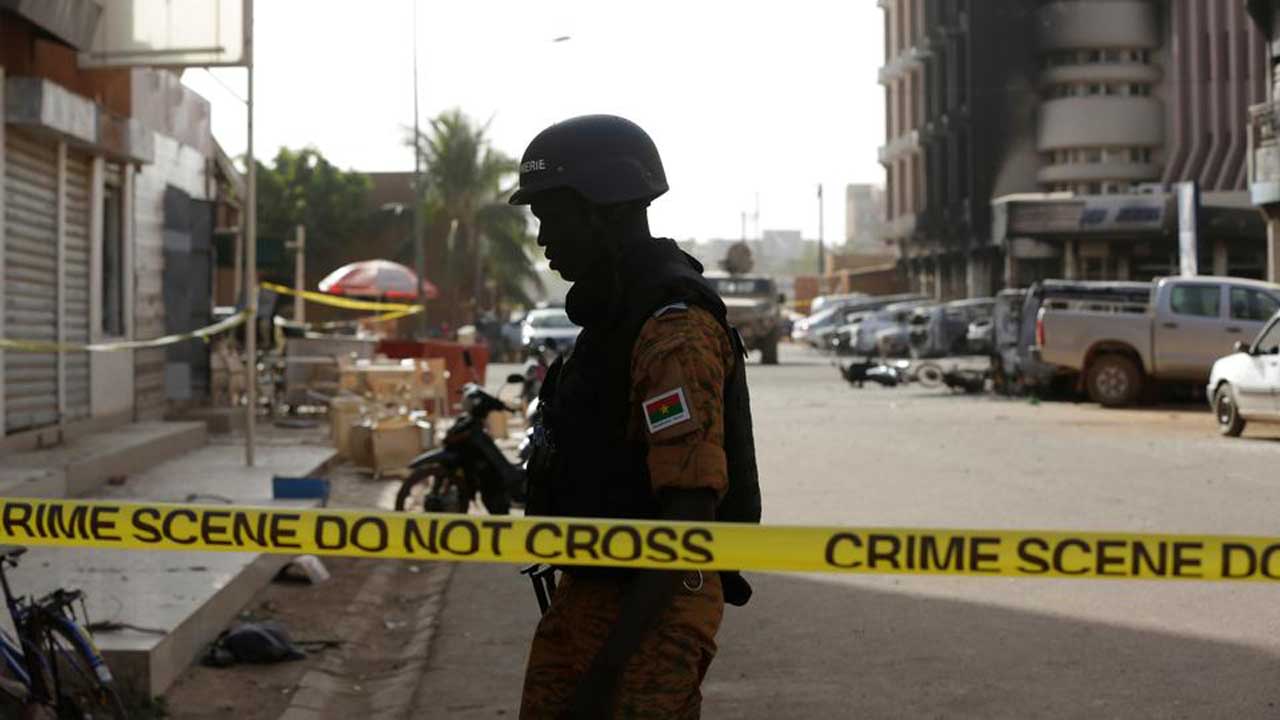Somalia officially begins its term on the UN Security Council
Somalia has officially begun its two-year term as a member of the UN Security Council, alongside four other new nations.
Egyptian and UK officials discuss solutions for regional crises
Cairo hosted critical talks between Egypt and the UK addressing aid for Gaza Syria’s political transition and Sudan’s humanitarian needs.
Boy found alive after 5 days lost in Zimbabwean park
Tinotenda Pudu, a young boy lost in a Zimbabwe game park, was found alive after five days, having survived on wild fruits amidst roaring lions and elephants.
Dozens rescued, 27 dead in shipwrecks off Tunisian coast
At least 27 migrants have died after two boats carrying them sank off the coast of Tunisia, while dozens were rescued by the Tunisian coast guard.
Cocoa smuggling from Ivory Coast to Guinea surges
About 50,000 tons of Ivorian cocoa worth $573 million were smuggled into Guinea between October and December, driven by rising cocoa prices and widespread corruption.
Signs of detente: Ethiopian defense minister visits Somalia
Ethiopia’s Defense Minister visited Somalia on Thursday, marking a significant step towards de-escalating tensions between the two countries following a dispute over a proposed Ethiopian naval base in Somaliland.
Saving the African manatee: Cameroon’s conservation frontier
African manatees face significant threats, but conservation efforts in Cameroon’s Lake Ossa are offering hope by uniting communities and scientists to preserve their habitat.
RSF leader Dagalo vows unity amid Sudan conflict
In an audio statement, Daglo rejected proposals from some members of the anti-war Tagadum bloc to establish a separate government in RSF-controlled regions
Jollof Rice museum opens in Ghana, celebrating West African heritage
Jollof rice will continue to bring people together, one delicious bite at a time
Ruto Acknowledges Security Forces’ Abuse of Power
President William Ruto has publicly acknowledged the abuse of power by Kenya’s security forces for the first time, amid a wave of controversial kidnappings that have sparked widespread protests across the country. In his New Year’s address on Tuesday, Ruto admitted that there had been “instances of excessive and extrajudicial actions” by security personnel, though he did not provide specific details. His remarks come in the wake of youth-led demonstrations calling attention to the alleged abductions by security forces, particularly following the violent suppression of protests in June and July. These protests, which focused on growing concerns over disappearances, were met with heavy-handed responses, including the use of tear gas and mass detentions. “That said, it is crucial to remember that every freedom has its limits, and public safety and order must always supersede the desire for unchecked liberty,” Ruto stated. Human rights activists have raised alarms over the government’s failure to adequately investigate the disappearances. A recent court ruling ordered the immediate release of five men allegedly abducted by security forces, or that the police provide an explanation under oath. However, no one was brought to court on Tuesday, and a representative of the police inspector general attended the proceedings instead. Families of the missing individuals are growing increasingly desperate. Many of the recent disappearances involve young people critical of Ruto’s government, including two individuals who shared a controversial AI-generated image of the president in a coffin. In his address, Ruto linked these incidents to the rise in digital manipulation and harmful social media activity. “These are clear signals that our moral fabric is at risk of decay,” Ruto remarked. Human Rights Watch has identified a special security unit composed of multiple agencies allegedly involved in these actions, with the Kenya National Commission on Human Rights reporting seven abductions this month, six of which remain unresolved. Since June, 29 people out of 82 reported disappearances are still unaccounted for, intensifying calls for greater accountability from both the government and security forces.
The death penalty has been abolished in Zimbabwe
In a historic move, Zimbabwe has officially abolished the death penalty following the signing of the Death Penalty Abolition Act (2024) by President Emmerson Mnangagwa. This significant legal change follows the approval of the Bill by the Senate and marks a major advancement in the country’s commitment to human rights, recognizing the death penalty as a violation of dignity and the right to life. The abolition of the death penalty comes after nearly two decades without executions, with the last death sentence carried out in 2005. Despite this, courts in Zimbabwe could still impose death sentences for aggravated murder, leaving individuals on death row to endure years of uncertainty and harsh conditions. The new law ensures that those currently sentenced to death—approximately 62 individuals, according to reports—will have their sentences either reduced or commuted, effectively ending the practice of death row in the country. The path to abolition began in November 2023 when Edwin Mushoriwa, a Member of Parliament for Dzivarasekwa, introduced the Death Penalty Abolition Bill as a private member’s initiative. The government’s commitment to abolishing capital punishment was solidified with Cabinet approval in February 2024, and the Bill successfully passed through the National Assembly and Senate. President Mnangagwa’s final assent on December 31, 2024, brought the Bill into law. This achievement is the result of nearly a decade of sustained advocacy and collaboration between Zimbabwe’s government and civil society. The Death Penalty Project, along with local partners such as the Zimbabwean NGO Veritas, worked closely with Mushoriwa to support the development and passage of the Bill. The initiative gained additional momentum through empirical research by the Death Penalty Research Unit at the University of Oxford, which explored public attitudes toward capital punishment, and extensive engagement with Zimbabwe’s political leaders. With the abolition, Zimbabwe joins 29 other African countries that have removed the death penalty for ordinary crimes or all crimes, adding to the continent’s growing momentum toward universal abolition. In this decade alone, countries such as Chad, Sierra Leone, the Central African Republic, Equatorial Guinea, Zambia, and Ghana have followed suit, making Africa the fastest-moving continent in abolishing the death penalty. Zimbabwe’s decision marks an important turning point for other abolitionist de facto states in Africa, where the death penalty is still retained in law but executions have not occurred in over a decade. Among these are Zimbabwe’s regional neighbors, including Malawi, Kenya, Tanzania, and Uganda, which may now be encouraged to take similar steps toward permanent abolition. This historic moment is a testament to the power of political will, civil society collaboration, and sustained international advocacy, as Zimbabwe steps into a new era of human rights protections.
South Sudan receives 1.1 Million cholera vaccine
South Sudan received 1.1 million cholera vaccine doses on Monday as part of its efforts to combat a growing outbreak. The vaccines, donated by the Global Alliance for Vaccines and Immunizations (GAVI), arrived in Juba via air. Gabriel Buom Tap, UNICEF Immunization Officer, explained, “This is a two-dose vaccine, but even a single dose provides immunity within two weeks for up to six months. The second dose offers protection for up to three years.” The cholera outbreak, declared in October in a border town between Sudan and South Sudan, has spread to six of the country’s 10 states. The most affected populations are those displaced by floods and refugees from Sudan. More than 100 deaths have been reported, with over 6,000 people currently infected. The South Sudan government is urging the health sector and other stakeholders to intensify efforts to contain the disease. Health Minister Yolanda Awel Deng emphasized, “I urge the media and civil society to join in raising awareness about the importance of vaccination.”
Malawi’s president sacks defense minister in mini Cabinet reshuffle
Malawi’s President Lazarus Chakwera sacked Defense Minister Harry Mkandawire in a mini Cabinet reshuffle Wednesday. Chakwera also fired Deputy Education Minister Nancy Mdooko and reassigned other ministers to new portfolios in a move he said in his New Year’s message to the nation was aimed at “offering the best service to the country in 2025.” Chakwera had come under intense pressure from various sectors of society to fire Mkandawire over the manner in which the death of Vice President Saulosi Chilima on June 10 last year in a military plane crash was handled. Chilima and eight others died in the crash in a forest in the northern part of Malawi in dense fog and the military has been accused of “negligence” in terms of organizing search and rescue efforts. George Phiri, political and social commentator, applauded the president for his decision to sack Mkandawire, describing it as a “step in the right direction.” “At least the president has demonstrated that he has heard what people have been saying about the Ministry of Defense and the minister responsible. Although the decision to sack him has come a bit late, it’s better than no action at all. Ministers and other public servants should be held accountable for their actions,” Phiri told Anadolu. But some critics have faulted the president for maintaining a 31-member Cabinet at a time when the country’s economy is “bleeding.” Economist Milward Tobias told Anadolu that the idea to maintain 31 Cabinet ministers “was just being insensitive to the plight of Malawians.” “The state of our economy is very poor at the moment, and the president could have seized this as an opportunity to trim the size of his Cabinet. Our economy isn’t fit to accommodate a Cabinet of this size. The government has to be sensitive to what people are complaining about. They are preaching of austerity measures, but there is nothing on the ground to demonstrate that,” Tobias said. Malawians are gearing up to head to the polls in September, and already the political temperature is heating up.
Burundi blocks opposition from elections
Opposition figures in Burundi have been barred from standing in the upcoming elections, with the election commission citing violations of electoral laws and restrictions on party affiliation.
African leaders pledge commitment to peace, regional cooperation
African leaders have ushered in the New Year with calls for peace, unity, and cooperation, acknowledging the significant challenges facing their nations and the broader region.
Islamic State claims attack on Somali military base
The Islamic State group has claimed responsibility for a major attack on a military base in Somalia’s Puntland region.
Military tribunal in DR Congo hands down 13 death sentences
A Congolese military tribunal sentenced 13 soldiers to death on charges including murder, looting, and desertion, reflecting a crackdown on military discipline amidst ongoing conflict in the east.
Rwanda’s Mara Phones: A landmark in Africa’s industrial journey
In 2019, Rwanda made history by launching Mara Phones, the first smartphones entirely manufactured in Africa
Ivory Coast to withdraw French troops in shift to military autonomy
The move follows a broader regional trend, with neighboring Senegal also confirming that French forces will leave by the end of 2025
Burkina Faso grants Amnesty to 2015 coup plotters
Burkina Faso is taking steps to address its tumultuous history. The country’s transitional parliament has approved a law granting amnesty to soldiers involved in a 2015 coup attempt. In that year, a group of soldiers from the Presidential Security Regiment, loyal to the ousted President Blaise Compaoré, attempted to overthrow the transitional government just weeks before elections were due to take place. The coup ultimately failed after a faction of the military intervened. Several high-ranking officers who orchestrated the plot were sentenced to prison in 2019. To receive amnesty, they must submit a letter requesting clemency to the country’s current military leader, Captain Ibrahim Traoré. The coup plotters had sought to restore Compaoré, who had been ousted in 2014 by widespread protests against his attempt to amend the constitution and extend his 27-year rule. Compaoré fled the country after his departure from office. Burkina Faso’s history has been marked by political instability, including multiple military takeovers and short-lived democratic experiments. Roch Marc Kabore, elected president shortly after the 2015 coup attempt, was overthrown by soldiers in 2022. An eight-month-long mutiny led to the rise of a new junta, now led by Traoré. While some view the amnesty as a step toward national reconciliation, others question its motivations and the potential consequences.
Thousands rally in Istanbul on New Year’s Day to support Palestine
Tens of thousands gathered at Istanbul’s Galata Bridge on New Year’s Day to express solidarity with Palestine. Participants marched from mosques across the historic peninsula and beyond after early morning prayers, carrying Turkish and Palestinian flags. The event was organized by the National Will Platform, a coalition of 308 NGOs. The demonstrators prayed for an end to the Israeli massacre in Palestine before assembling on the bridge, which spans the iconic Golden Horn, to demand international action against the ongoing atrocities. Protesters chanted slogans such as “Murderer Israel will be held accountable” and “Martyrs do not die.” The Israeli army has waged a genocidal war on Gaza, killing over 45,500 people, mostly women and children, since a Hamas attack on Oct. 7, 2023, despite a UN Security Council resolution calling for an immediate cease-fire. In November 2024, the International Criminal Court issued arrest warrants for Israeli Prime Minister Benjamin Netanyahu and former Defense Minister Yoav Gallant on charges of war crimes and crimes against humanity in Gaza. Israel is also facing a genocide case at the International Court of Justice for its war on the enclave.
Ramaphosa offers support as Mozambique faces post-election unrest
The South African president, Cyril Ramaphosa, called on special envoy Sydney Mufamadi to voice his government’s solidarity with the neighbouring country, and its eagerness to help end the crisis. Fearing that the unrest could become more widespread, South Africa has ramped up security along its border. Mozambique’s Constitutional Council recently confirmed the victory of the Frelimo party in the election, sparking a fresh wave of protests. The main opposition candidate, Venâncio Mondlane, has refused to accept the outcome of the election, describing it as rigged, and has called on his supporters to organise demonstrations. Buildings, including Frelimo’s offices and police stations, have been looted and set alight across the nation. Capitalising on the instability, hundreds of detainees escaped from a high security prison in Mozambique’s capital last week, Dozens of people have been killed in the protests since the elections.
Syria and Egypt foreign ministers discuss regional peace efforts
According to a statement from Egypt’s Foreign Ministry, Abdelatty reaffirmed his country’s support for the Syrian people and their rightful aspirations
Minister dismissed for calling African soldiers ‘traitors’ in Sene...
Senegalese President Bassirou Diomaye Faye dismissed a minister who called African soldiers who fought for France in colonial times “traitors.”
Sudan’s cholera epidemic claims over 1,300 lives
The Sudanese Ministry of Health has reported that the death toll from the cholera outbreak has risen to 1,316, with over 49,000 cases identified.
ISIS claims responsibility for attack on Somali base
Islamic State militants launched a suicide attack on a military base in Puntland, Somalia, but were successfully repelled by security forces.
Zimbabwe joins global movement to abolish capital punishment
President Emmerson Mnangagwa of Zimbabwe has signed a law abolishing the death penalty, a significant development for the country that has not carried out an execution in nearly two decades.


